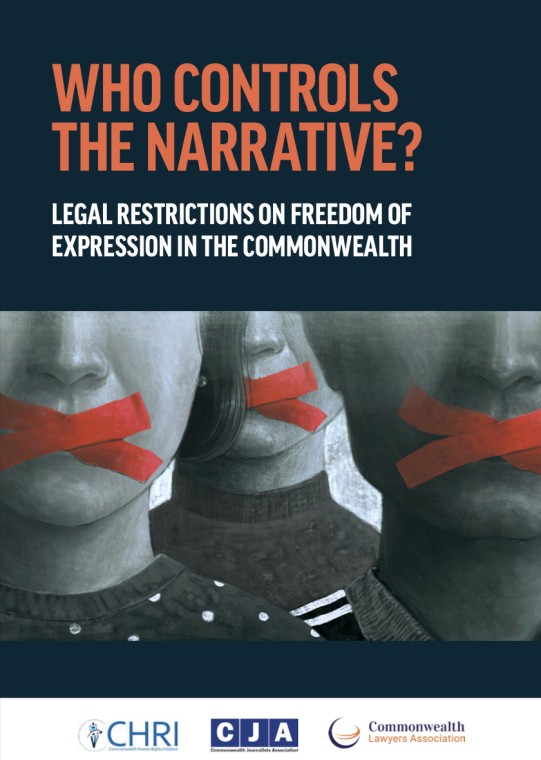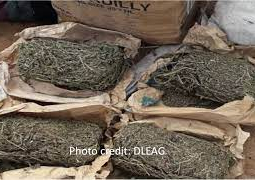
The three Commonwealth Accredited Organisations, whose networks span across the globe, call on all Member States, in accordance with the mandate provided by Heads of Government at the 2024 CHOGM, to urgently repeal laws that criminalise legitimate public speech. They also call for decisive action to protect media workers and others who perform a public watchdog role from violence and intimidation.
In a major breakthrough, Commonwealth leaders adopted a landmark set of guidelines on freedom of expression and the media’s role in good governance at their summit meeting in Samoa in October 2024. That decision followed an eight-year campaign of advocacy and consultation led by representative grass roots organisations affiliated to the Commonwealth.
The report Who Controls the Narrative? Legal Restrictions on Freedom of Expression in the Commonwealth finds that criminal provisions for speech offences, including defamation and sedition, as well as violations of national security laws, are arbitrarily applied to intimidate and silence journalists, human rights defenders, and government critics. A key objective, the authors argue, must be to decriminalise defamation laws in 41 Commonwealth countries–many of which permit long prison sentences.
The report is based on a close analysis of the national legal frameworks and draws on testimonies from over 30 senior journalists and 35 lawyers across Africa, Asia, the Americas and the Caribbean, Europe, and the Pacific regions. The report concludes that the Commonwealth’s past inaction has contributed to the serious and persistent challenges to the protection of freedom of expression and the rule of law in some member countries.
The report urges the Secretariat and Member States to act resolutely, together with non-governmental organisations, to ensure observance of the 11-point Commonwealth Principles on Freedom of Expression and the Role of the Media in Good Governance adopted by Heads of Government in Samoa. These Media Principles call on governments to create a safe and enabling environment for media workers, and to review and consider amending unduly restrictive domestic laws that inhibit free speech both online and offline.
Major findings include:
213 journalists were killed in 19 Commonwealth countries between 2006 and 2023, and in 96% of cases the perpetrators have not been brought to justice (UNESCO figures).
41 Commonwealth countries maintain criminal penalties for defamation; 48 retain laws related to sedition; and 37 have blasphemy-like legislation.
The Commonwealth Ministerial Action Group (CMAG) is urged to fulfil its mandate to address systematic constraints on civil society and the media. CMAG should be reformed and supported by a Commonwealth Envoy on Freedom of Expression.
The CHRI, CJA, and CLA urge the Commonwealth Secretariat and Member States to:
Develop action plans with state and non-state actors to accelerate the repeal of criminal legislation for speech and anti-state offences in line with international best practice.
Collaborate with civil society and international human rights organisations, including UNESCO, to monitor and support the implementation of the Commonwealth Media Principles.
Prioritise the protection of civil and political rights as a strategic goal across all Commonwealth countries.
“Too many Commonwealth countries continue to enforce colonial-era laws that criminalise speech and silence dissent, in clear violation of their international obligations. The Media Principles adopted by Heads of Government in Samoa provide a timely opportunity for Member States to take concrete steps—through law reform and institutional safeguards—to protect freedom of expression and align national laws with international human rights standards,” said Sneh Aurora, Commonwealth Human Rights Initiative Director.
For the Commonwealth Journalists Association, William Horsley declared: “The almost complete failure of Commonwealth countries to prosecute and punish those responsible for the killings of over 200 journalists in 20 years is shameful. This culture of impunity must be swept away. A genuine Commonwealth engagement to protect the truth-tellers from threats and reprisals would give the organisation a vital new sense of purpose at a time when the concept of truth is under fierce attack.”
Read Other Articles In Headlines
Man who allegedly hacked wife disputes police recovery of key exhibit from his house
Feb 10, 2026, 11:17 AM



